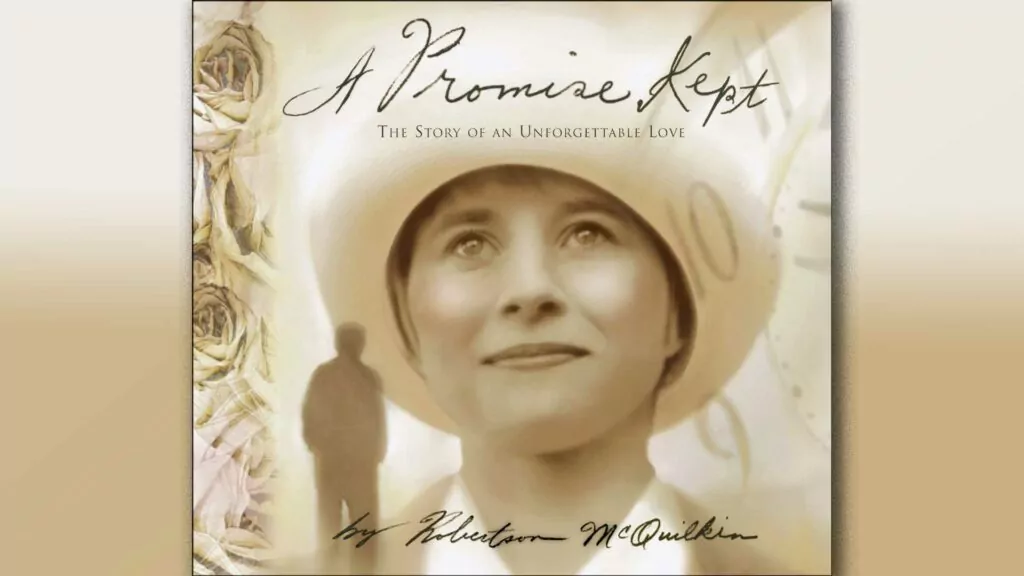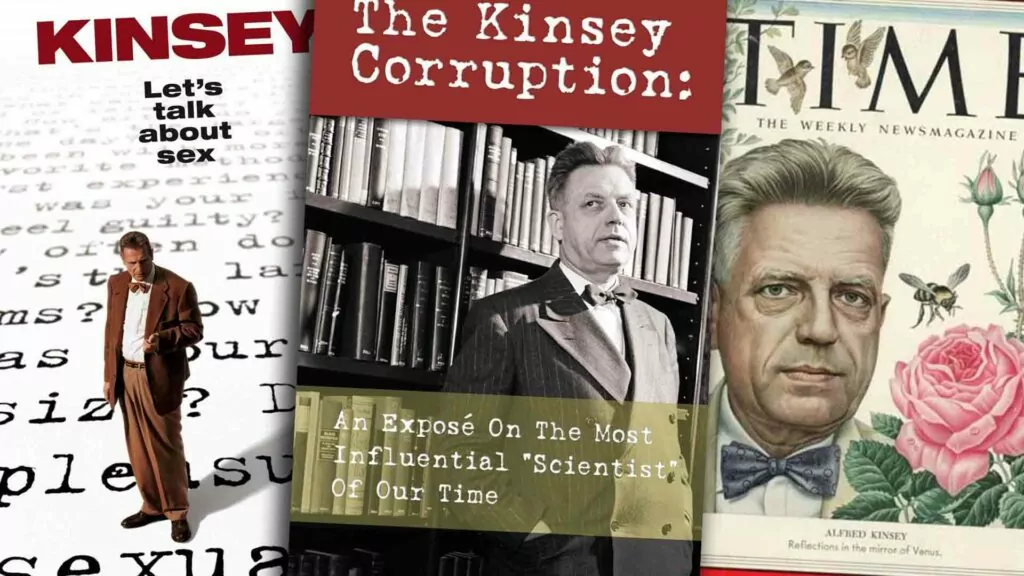Good parenting is time-consuming
In The New Tolerance, authors Josh McDowell and Bob Hostetler recall the method one dad used to teach his teenage son to see through the messages being presented in pop music. The son was allowed to buy any album he wanted so long as his dad listened to it beforehand.
“If dad approved not only of the language but of the more subtle messages in the music, fine; if not… dad would always explain his decisions.” At one point this father rejected three straight albums, which didn’t leave his son all that happy. And it wasn’t so easy on the dad either; he had to spend a long time listening to some lousy music. Nowadays parents might go song by song instead. But either way, by investing “quantity time” with his son – by slogging through track after tracj – this dad was able to equip his son to know and appreciate what was praiseworthy, and to see through what was shameful and unworthy.
No biggie, right?
“As my friend Terence McKenna used to say, ‘Modern Science is based on the principle, Give us one free miracle and while explain the rest.’ And the one free miracle is the appearance of all the matter and energy in the universe and all the laws that govern it from nothing, in a single instant.”
– Rupert Sheldrake
A tip to talk to your kids about God
by Jay Younts
In Matthew 16, Jesus presents his disciples with a two-part question. It is a masterful question and one that parents can use with great benefit.
Jesus asks his disciples, “Who do people say that I am?” When the disciples finish giving their answers, Jesus makes the question personal. He asks, “Who do you say that I am?” Peter quickly proclaims that Jesus “is the Christ, the Son of the Living God.”
This question revealed the content of Peter’s heart. You can use this two-part question effectively to help you understand your children’s thoughts. For example:
“Hey kids, what do you friends say is causing all of the damaging weather the country has been having?”
“What do you think has been causing this weather?”
or:
“What do your teammates say about major league stars using performance enhancing drugs?”
“What do you think about PED’s?”
There are many, many possible situations that this two-part question can help you better understand your children. For this to be effective, your concern and questions must genuine. They should flow out of normal conversations. This is a tool to help you gather data. If you want to use this more than once, then don’t immediately correct an answer that you think is wrong. You are asking for their opinion, don’t penalize children for doing what you asked. Rather, use the answers you receive to help plan positive ways address your children’s thoughts and correct them if needed.
It is always a good idea to follow Christ’s example in interacting with people.
SOURCE: Reprinted with permission from ShepherdPress.com
Good News vs. good advice
What’s the difference between good news and good advice?
Douglas Wilson gives the illustration of a teacher who, at the beginning of the term tells students to take careful notes, study hard, and listen with attention. That is all good advice. However when exam day comes the teachers notices one student who is staring, just staring, at his blank test sheet – he’s written nothing. The teacher could give some more tips: relax, clear your head, take some deep breathes. Those would all be good advice. But if the teacher says, “Scoot over – I’ll take the test for you,” that there is Good News!
Socialist says something smart!
“I’d rather vote for what I want, and not get it, than vote for what I don’t want and get it.”
– Eugene V. Debs, Socialist candidate for President in the 1900, 1904, 1908, 1912, and 1920 American elections.
Weighing words
“There are two kinds of people who don’t say much – those who are quiet, and those who talk a lot.”
– Unknown (but pretty in accord with Eccl. 5:2, 9:17, Prov. 10:19, Prov. 18:2 & Prov. 29:20)
G.K. Chesterton on dragons and monsters
Chesterton valued reading fantastical fiction to children, or at least the sort where good triumphs. He wrote:
“Fairy tales do not give the child his first idea of [monsters]. What fairy tales give the child is his first clear idea of the possible defeat of [monsters]. The baby has known the dragon intimately ever since he had an imagination. What the fairy tale provides for him is a St. George to kill the dragon. Exactly what the fairy tale does is this: it accustoms him for a series of clear pictures to the idea that these limitless terrors had a limit, that these shapeless enemies have enemies in the knights of God, that there is something in the universe more mystical than darkness, and stronger than strong fear.”
A common Bible-reading blunder
Some of people’s favorite Bible verses are actually misleading because they are isolated from their broader context. In the movie Soul Surfer, after Bethany Hamilton loses an arm to a shark attack, she grabs hold of Philippians 4:13 – “I can do all things through Christ who strengthens me” – as an assurance that she will again return to surfing. But when we look to the broader context in which this verse appears we see it is not about being able to do everything but rather about the author, the apostle Paul, being able to endure anything through Christ. In the January 2015 issue of Solid Ground (www.str.org) Greg Koukl succinctly summarizes what’s going wrong here:
“A host of popular verses have been consistently misunderstood by well-meaning Christians because of a simple mistake they’d never make with other writings. Here’s their blunder: They think there are verses in the Bible. What I mean is, the numbers creating individual verses give the false impression that sentences or phrases stand on their own as spiritual truths. But they almost never do. When you ask, “How does this verse apply to my life?” you may be assuming it has significance – and therefore, application – disconnected from the larger narrative or flow of thought. That’s the problem. Most people would be surprised to discover there actually are no verses in God’s inspired Word. They were added 1500 years later. As a result, some of the most popular passages have been consistently misread by believers because the numbers got in the way.”
Evangelism is vital, but why?
“Mission is not the ultimate goal of the Church. Worship is. Mission exists because worship doesn’t. Worship is ultimate, not missions, because God is ultimate, not man.”
– John Piper
Bible reading blunder II
As incendiary blog post titles go, this one was scorching: “The One Page of the Bible I’d Like to Rip Out.” But this truly was addition by subtraction: Chad Bird wants to rip out a page that is “blank except for three words: ‘The New Testament.’” As he explained:
…it’s more than a page; it’s really a mind-set that this page represents. It’s the wrongheaded assumption that a radical separation exists between the Old Testament and the New Testament. This way of thinking dams up the waters of the first part of the Bible from the last part of the Bible. In reality, yes, the biblical stream flows deeply and freely from Malachi to Matthew, but too many Christians don’t see it that way. They see two, very distinct, often even opposing, bodies of water. They look to the left and see the “river of law” in the OT; and to the right they view the “river of Gospel” in the NT…. Rather than confessing that the writings of Moses and the prophets are Christian scripture, they treat them as Jewish scripture from which Christians might learn a few things. So you see, it’s not so much that I want to rip the page out of the Bible that divorces the OT from the NT, but that I want to rip that mindset out of the heads of modern Christians.
Those forgiving privateers
Spotted on a T-shirt: “To err is human; to ‘arr!’ is pirate.”
Pierre vs. Justin on abortion
Back in 2014 Liberal Party leader Justin Trudeau announced that anyone running for his party in the next election would be expected to vote against any limits to abortion. In response pro-life Conservative MP Maurice Vellacott shared an old newspaper quote to contrast Justin Trudeau’s views on abortion – as an unquestionable and absolute right – with that of his father, Pierre. Though the former prime minister eliminated most of the unborn’s legal protections he was against the unfettered access his son supports. In a May 25, 1972 article the then Prime Minister Trudeau was quoted in The Montreal Star saying:
You know, at some point you are killing life in the foetus in self-defense – of what? Of the mother’s health or her happiness or of her social rights or her privilege as a human being? I think she should have to answer for it and explain. Now, whether it should be to three doctors or one doctor or to a priest or a bishop or to her mother-in-law is a question you might want to argue…. You do have a right over your own body – it is your body. But the foetus is not your body; it’s someone else’s body. And if you kill it, you’ll have to explain.
It’s hard to determine which Trudeau’s position is the more detestable: the father who admitted that another body – another somebody – was involved and still wanted abortion to be allowed in many circumstances, or the son who has never made such an admission, but wants abortion allowed in every circumstance.
Answering a fool
In Proverbs 26:4-5 God says we shouldn’t argue with fools…except when we should.
Do not answer a fool according to his folly,
or you yourself will be just like him.
Answer a fool according to his folly,
or he will be wise in his own eyes.
The danger in responding to fools is in coming off looking like them. So if a fool is just hurling insults in an online flame wars we shouldn’t engage with that kind of folly, because we’ll be likely to come off like just another angry fool. But when a fool offers an argument, then we can answer his folly by showing where his argument will logically take him.
So, in an online forum an abortion advocate wrote:
I don’t get why a human that lives 80 years with modern medicine is more important than a tree that lives 500 years.
Long-living trees are more important than short-living humans? We can expose the folly here by following it to its logical end. And we will glorify God when we contrast this foolishness with the wisdom of what God says. Our response might look something like this:
God says that man is the pinnacle of creation, but you place us somewhere behind trees. Do you live your life consistent with that belief? Do you read books? (You do know what those are made of, don’t you?) Have you sat around a campfire and enjoyed watching the flames dance over countless wooden carcasses? What is your home made out of? Your coffee filters? Do you use toilet paper? If you’re participating in the slaughter of trees your lifestyle shows even you don’t believe trees rate above humans. So reject your lie and explore what God has to say about his creation, and how Man is to care for it. And that begins with caring for the littlest and the weakest who are made in His image right from conception.
One reason we want really smart cops
In his book, The Notes, Ronald Reagan offered one very good reason why extra smart officers would be ideal. He shared a quip about a rookie cop who was asked, in an exam, how he would go about breaking up a crowd. The officer replied, “I’d take up a collection.”














